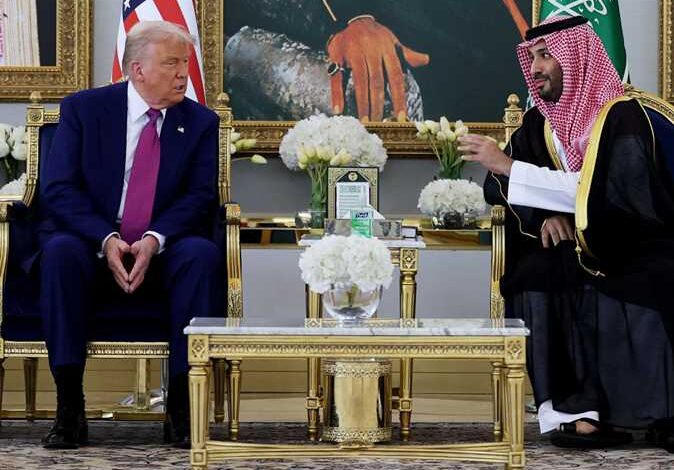
With U.S. President Donald Trump’s recent Middle East tour concluded, intense speculation surrounds potential shifts in the Gaza conflict.
In a rare statement regarding the humanitarian situation in the Strip, President Trump said on Friday, “The people of Gaza are starving,” adding, “I expect many good things to happen in the next month.”
However, as of now, Trump’s position remains shrouded in ambiguity: Is it a momentary expression of sympathy reflecting political embarrassment, or the beginning of a shift in Washington’s handling of the Gaza catastrophe? And could it lead to actual action that alleviates the suffocating blockade and halts the accelerating specter of famine?
Declared famine and Israeli denial
These remarks come at a time of escalating international warnings about the collapse of the humanitarian situation in the Gaza Strip.
Israel, which has been preventing the entry of aid since the beginning of March, resumed its military operations in the sector on the 18th of the same month, resulting in the death of over 2,800 people in a matter of weeks.
Aid organizations are asserting that the Strip is experiencing a genuine famine and a near-complete depletion of food and medical supplies. Meanwhile, Israel denies the existence of a humanitarian crisis, insisting that the situation is under control despite on-the-ground testimonies and international reports indicating otherwise.
A divided Washington: Conflicting rhetoric and policy discord
Trump’s pronouncements came just a day after more cautious statements from U.S. Secretary of State Marco Rubio, who indicated that the U.S. was “open to any new ideas” to deliver aid to Gaza, amidst growing criticism of the current Washington and Tel Aviv-backed support plan.
Despite expressing “concern over the humanitarian situation,” Rubio offered no concrete alternatives or a clear timeline, leading Trump’s remarks to be interpreted as a potential breakthrough, or at least a shift in political tone within the U.S. administration.
Trump acknowledges the war’s toll: Political and economic costs mount
According to the New York Times, reporting on the atmosphere surrounding the visit, Trump is acutely aware that the ongoing war in Gaza undermines his political and economic interests, particularly as he seeks to reposition the U.S. in the region on more pragmatic terms.
The newspaper further stated that the U.S. President views Israeli Prime Minister Benjamin Netanyahu as the primary “obstacle” to a comprehensive de-escalation, which could appease Washington’s Gulf allies, who are pressing for a cessation of hostilities and facilitated aid delivery.
Aid blockaded, famine intensifies
These remarks are made against the backdrop of a persistent Israeli blockade, which has halted aid entry since early March and coincided with the renewed military offensive on March 18th. This has resulted in at least 2,876 deaths, according to local medical sources.




